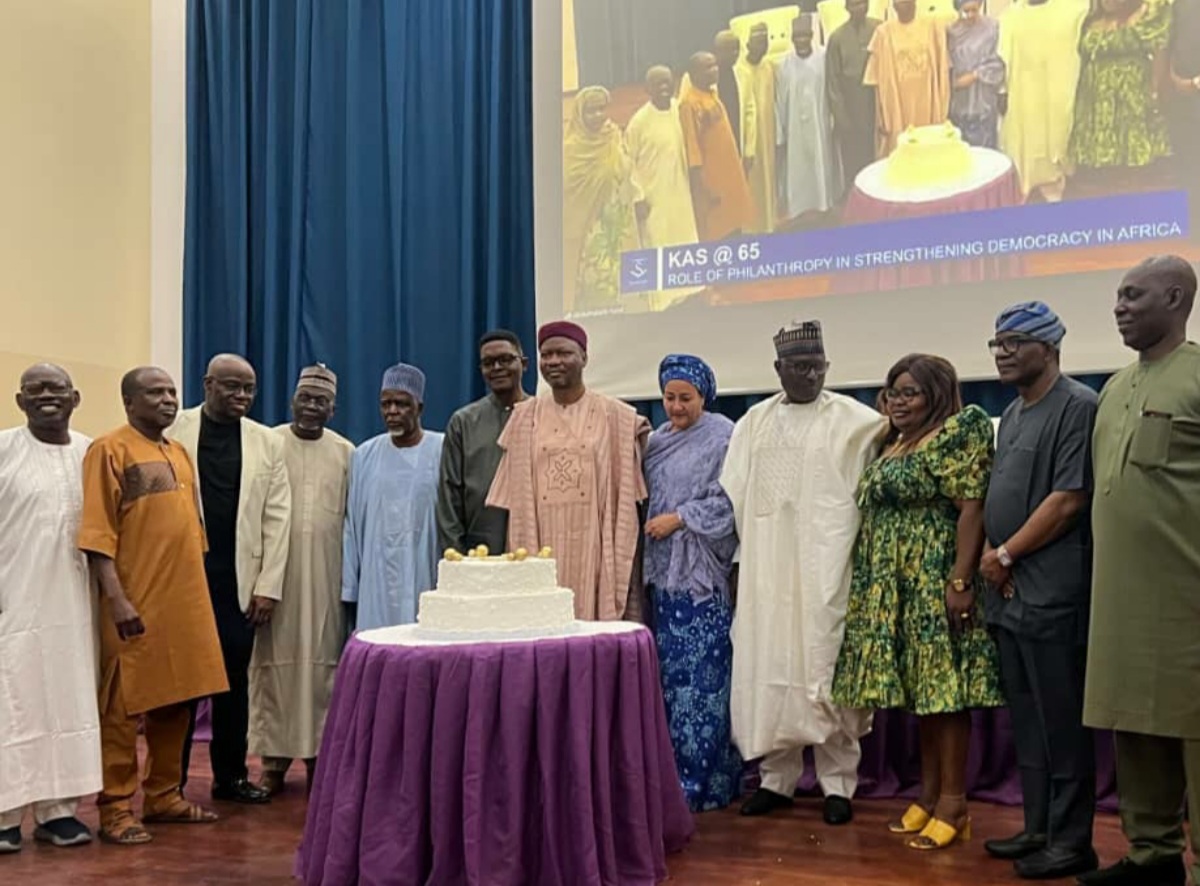By NAN
Stakeholders in the democratic governance sector have emphasised the crucial role philanthropic organisations play in strengthening democracy in Africa.
The shareholders spoke at a symposium in Abuja on Thursday.
The News Agency of Nigeria (NAN) reports that the symposium organised to celebrate the 65th birthday of Dr Kole Shettima had as its theme, “Role of Philanthropy in Strengthening Democracy in Africa”.
They said that philanthropic organisations had been supporting democratic initiatives, promoting human rights and building the capacity of civil society organisations to support democratic governance.
Dr Yunusa Ya’u, Executive Director, Centre for Information Technology and Development (CITAD), said that Shettima had been in the forefront of championing philanthropic work in Nigeria.
Ya’u said that such philanthropic roles had promoted transparency and accountability in government, supported media freedom and promoted civic education and voter awareness.
“Shettima’s career, particularly his leadership at the MacArthur Foundation, has been instrumental to supporting democratic causes in Nigeria and across Africa.
“Under his stewardship, the foundation has provided critical support to civil society, government, and the private sector in efforts to strengthen democracy,” he said.
The keynote Speaker, Dr Emmanuel Akwetey, the Executive Director, Institute for Democratic Governance (IDEG), said that philanthropic organisations played vital roles in supporting the transition from military to democratic governments in African countries.
Akwetey said that between 2008 and 2020 philanthropists contributed approximately five billion dollars to the development of democracy in Africa.
“Recognising that democracy can not thrive without strong institutions and inclusive governance, philanthropic organisations began funding initiatives aimed at judicial reforms, leadership development, anti-corruption efforts, and public sector transparency, ” he said.
Akwetey said that people like Shettima helped in spearheading philanthropic work in NNigeria.
According to him, Shettima played a critical role in establishing democracy, and in training local leaders to provide economic support for governance at their levels.
The Special Adviser to the INEC Chairman, Prof. Mohammad Kunna, said that although philanthropy had achieved much, it is not a solution for every problem.
Kuna said that the state had a critical responsibility to discharge, adding that the people should hold the government accountable to do what they are supposed to do before thinking of external assistance.
“The citizens need to push the government to discharge its responsibilities effectively. From where the state stops foreign aides can take over,” he said.
The Deputy Secretary-General, United Nations, Amina Mohammed, lauded Shettima’s contributions to the development of democracy in Nigeria and Africa.
Mohammed said that for democracy to thrive, there must be accountability and transparency.
“If we believe in democracy, then we have to be the fire under the feet of those we elected into office and ensure representations,” she said.
Speaking at a panel discussion, Dr Hilary Ogbonna, an International Development and Human Rights Expert,said that philanthropy had done much good.
Ogbonna, however, said that there was a need for Africa to begin to look inwards, and not always depend on foreign aid.
“There are sufficient resources in Nigeria and other African countries, so we do not need foreign aid.
“However, this is not taking away building on what philanthropy has gained over the last few decades in Africa, but that the foundation has been laid for us to move to the next chapter.
“The next chapter is ensuring that we have a solid plan for intergenerational progress, moving from one generation to the other in terms of leadership for democracy across Africa,” he said.
Hajia Saudatu Mahdi from Women’s Rights Advancement and Protection Alternative (WRAPA), said that Nigeria needed to start thinking inward to proffer solutions to its challenges.
Mahdi said that there was a need to settle the trust deficit between civic actors and those power or resource managers.
“We need to be able to translate things such as constituency projects, into development projects.” she said.
Also speaking, Former Governor of Ekiti state, Dr Kayode Fayemi, described Shettima as a humanist who exemplified empathy in all ways.
Fayemi eulogised the contributions of Shettima to democracy, adding that there was a need to emulate him to strengthen democracy in Nigeria.
NEWS AGENCY OF NIGERIA

